POMPEII: BETWEEN RUINS AND VINEYARDS
Wine was a very fashionable "subject" in Pompeii, considering the numerous finds of vineyards within the excavations of Pompeii, most of them located near the amphitheatre. These finds attest to the primacy of this agricultural production, as do the equally important remains of cauponae, i.e. popular taverns selling and distributing wine and sometimes with a kitchen service. Also very important is the splendid frescoed image of La Casa del Centenario, with Dionysus wrapped in bunches of grapes, depicted against the background of a Vesuvius covered with vines, before the eruption. Basement dolia were found in the area surrounding Pompeii, namely in the excavations of Boscoreale and at Villa Vesuvio in Scafati. In the ruins of ancient Pompeii a price list was found on the wall of a thermopolium stating:
"For one axle you can drink wine for two axles you can drink the best and for four you can drink Falerno".
The huge archaeological park of Pompeii shows the whole world what the Pompeian civilisation was like until a few minutes before the devastating eruption of Vesuvius in 79 AD. We visit the excavations walking through the ancient theatre, the alleys, the villas and the houses. We can stop to admire the casts or listen to the silence that the area offers.
Pompeii
The Ancient and the cult of wine
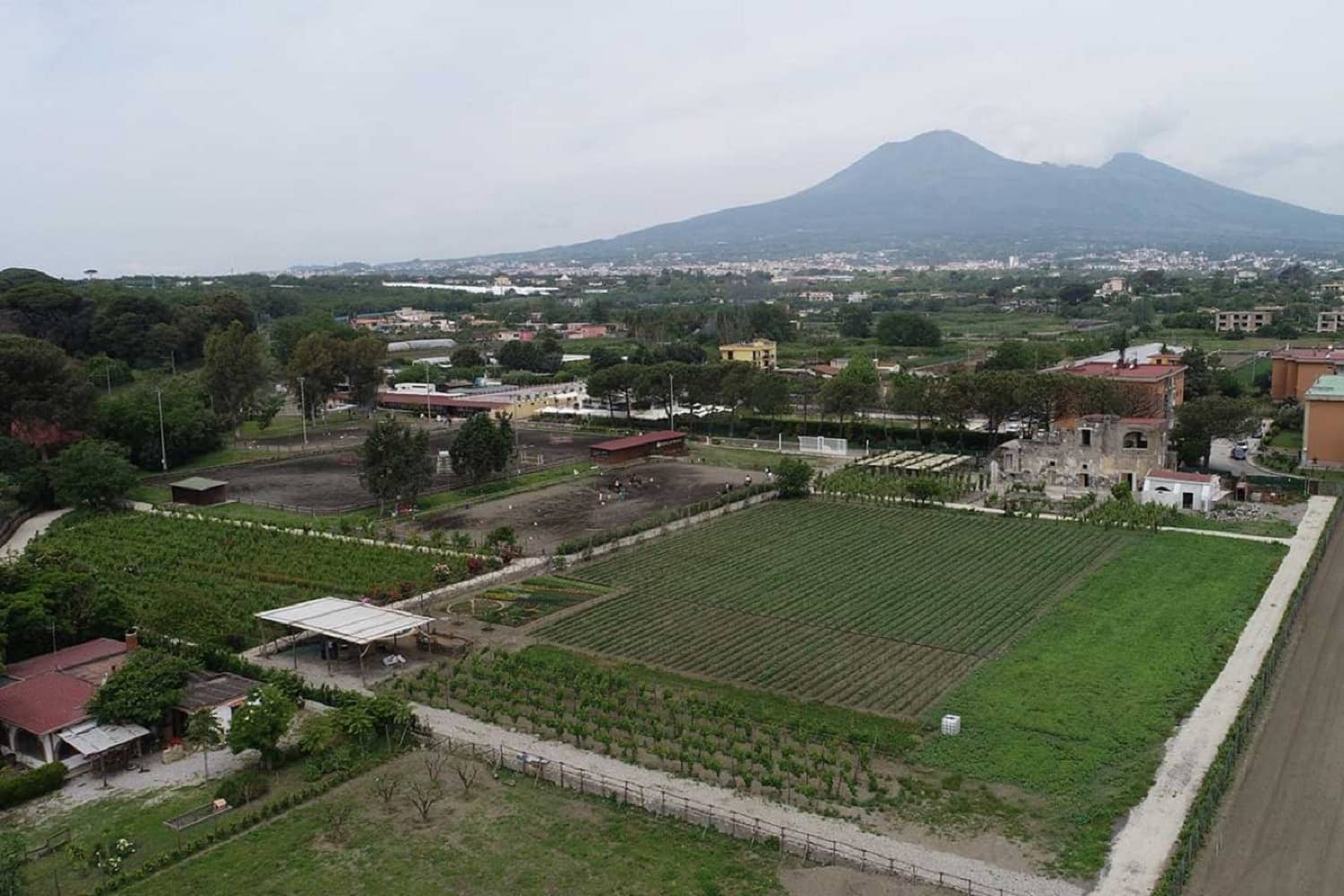
The Ancient Greeks were the first to introduce the winemaking tradition in Campania with the seeds of the 'vitis vinifera'. The ancient Greeks were considered the greatest masters of wine production. Later on, the ancient Romans enhanced the Vesuvian area and its wine-growing areas by planting the vines known as "Vesuvio", which centuries later would give rise to the famous Lacryma Christi. Pompeii had great oenological importance and soon became the point of reference for the wine trade throughout the ancient world.
Pompeian wine
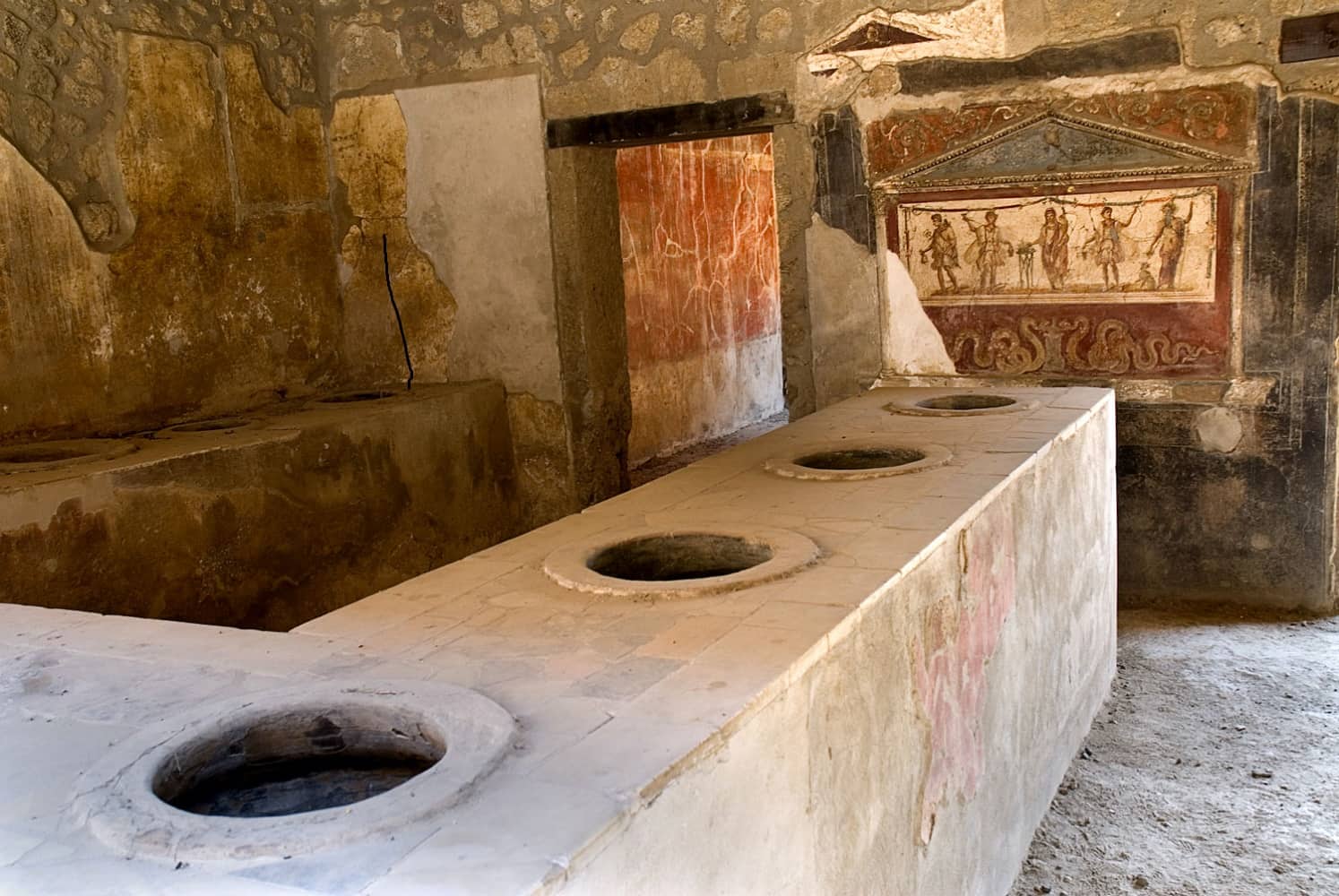
Pompeii also produced 'VINUM POMPEIANUM', which was aged for up to 25 years. Some Pompeian families specialised in wine-growing and used to age amphorae of 'mulsum', a wine sweetened with honey. The wine was certainly different from ours in characteristics and taste. The knowledge and techniques used are unchanged and very similar to those once used in ancient time in that area. This is fully demonstrated by the use of the "dolia": earthenware containers in which the wine was put.
Pompeii: between ancient time and modern life
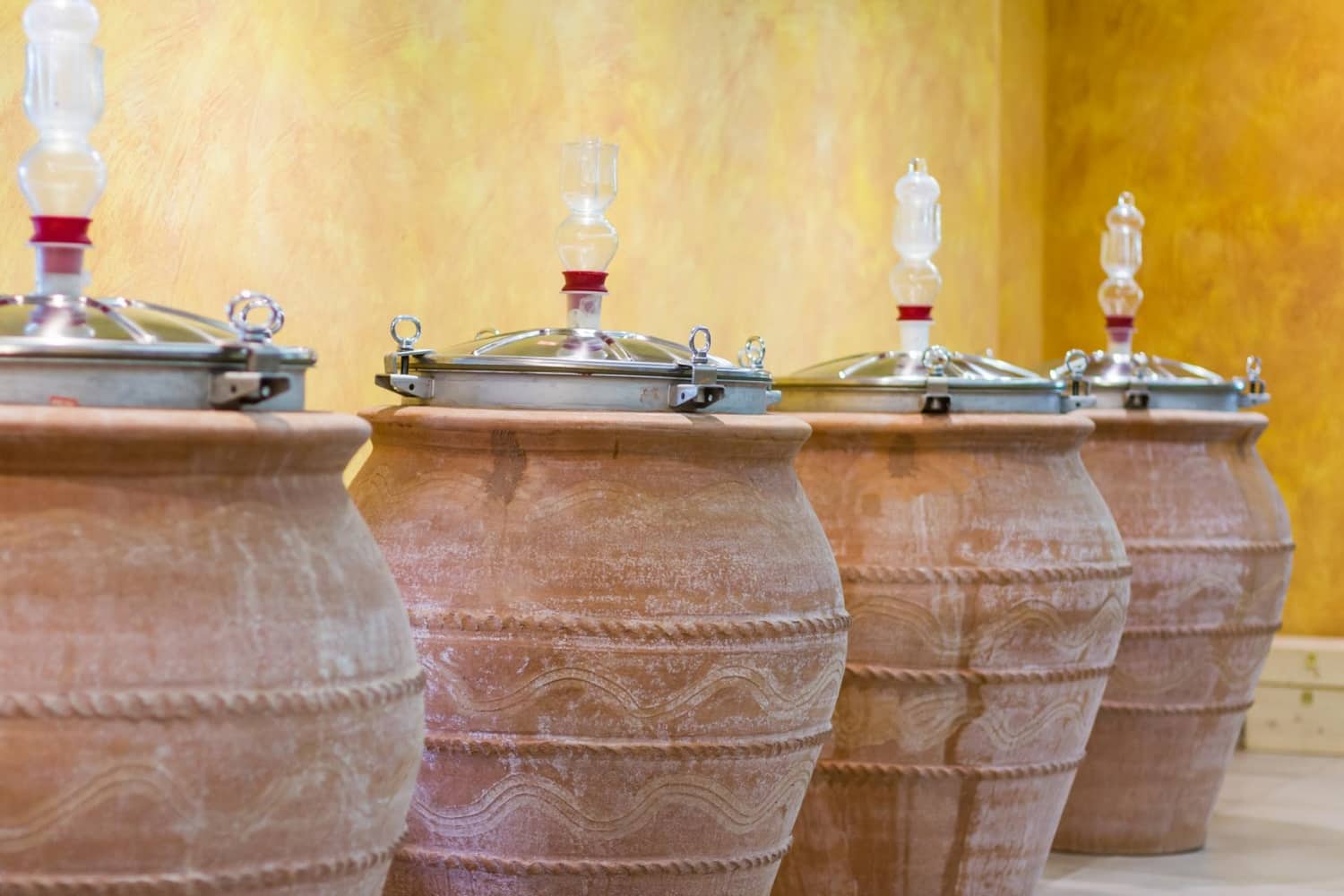
The Bosco de' Medici farm was born thanks to the Palomba family's strong love for the products of Vesuvius, such as wine and pomodorino del Piennolo, and the intense desire to enhance the excellent food and wine of the area.
Their love for the ancient world emerges and asserts itself in the production of wine. This is the case of the production of wine in amphora as done 2000 years ago: the Pompeian dolia used for the fermentation and conservation of wine as done by the ancient Greeks. Bosco de' Medici Winery has proposed Dressel 19.2, the official label of Caprettone (a white grape native to Vesuvius in terracotta amphora) the wine that celebrates the universality of Pompeian wine in the ancient world.
Through Bosco de' Medici, the Palomba family creates wines that are the full expression of this terroir and the voice of all the love for the territory. They have a great excellence vision to link the past to the present through ancient techniques. Although the winery is located in the heart of Pompeii, the vineyards are on the southern side of Vesuvius. The vineyards are those of Piedirosso, Caprettone, Aglianico and Falanghina.
Bosco de Medici produces two lines in particular: POMPEII LINE and ARCHEOLOGICAL LINE.
Pompeii Bianco, is a wine born from a rare grape, the Caprettone: 70% vinification in steel silos, and the remaining part in terracotta amphorae. Pompeii Rosso comes from the Vigneto la Rotonda in Terzigno, where grandfather Raffaele used to spend his days.
ARCHEOLOGICAL LINE: This is Bosco de' Medici's most experimental line. The Dressel 19.2 is born from only Caprettone grapes and completes its vinification entirely in earthenware dolia placed above ground and refines in earthenware dolia buried in the cellar of the farmhouse. The name is in honour of Heinrich Dressel, archaeologist and one of the world's greatest experts on terracotta amphorae. Agathos, on the other hand, is a red wine made only from Piedirosso grapes. It comes from the small vineyard in Lettere (in the Lattari mountains).
The food and wine tours organised by the Palomba family give amazing access to the rooms where the wines and the amphora wine project take shape. A project of extraordinary beauty and authenticity, thanks to which you can see with your own eyes how wine was treated in ancient Pompeii.
Bosco de' Medici also gives you the opportunity to visit an eighteenth-century farmhouse and to walk through the small necropolis of Porta Sarno dating from the second century BC. - I century A.D. located within the estate.
The richness of the land on the estate gives life to high quality organic products. These products will give shape to dishes based on ancient recipes handed down from great-grandmother Colomba to grandmother Emiddia and then to her grandchildren. Obviously, wine will be the master.
The Palomba family is ready to satisfy the needs of all the curious and lovers of good food, creating ad hoc experiences for the most demanding customers. What can we say, all that's left is to enter the heart of Pompeii, listen to the legendary stories of these extraordinary vine-growers and visit unique places of extraordinary originality such as Bosco de' Medici. The rest will be a triumph of emotions, flavours and knowledge.
Further Info about Bosco dei Medici's WinesAbout the author
Written on 04/07/2021

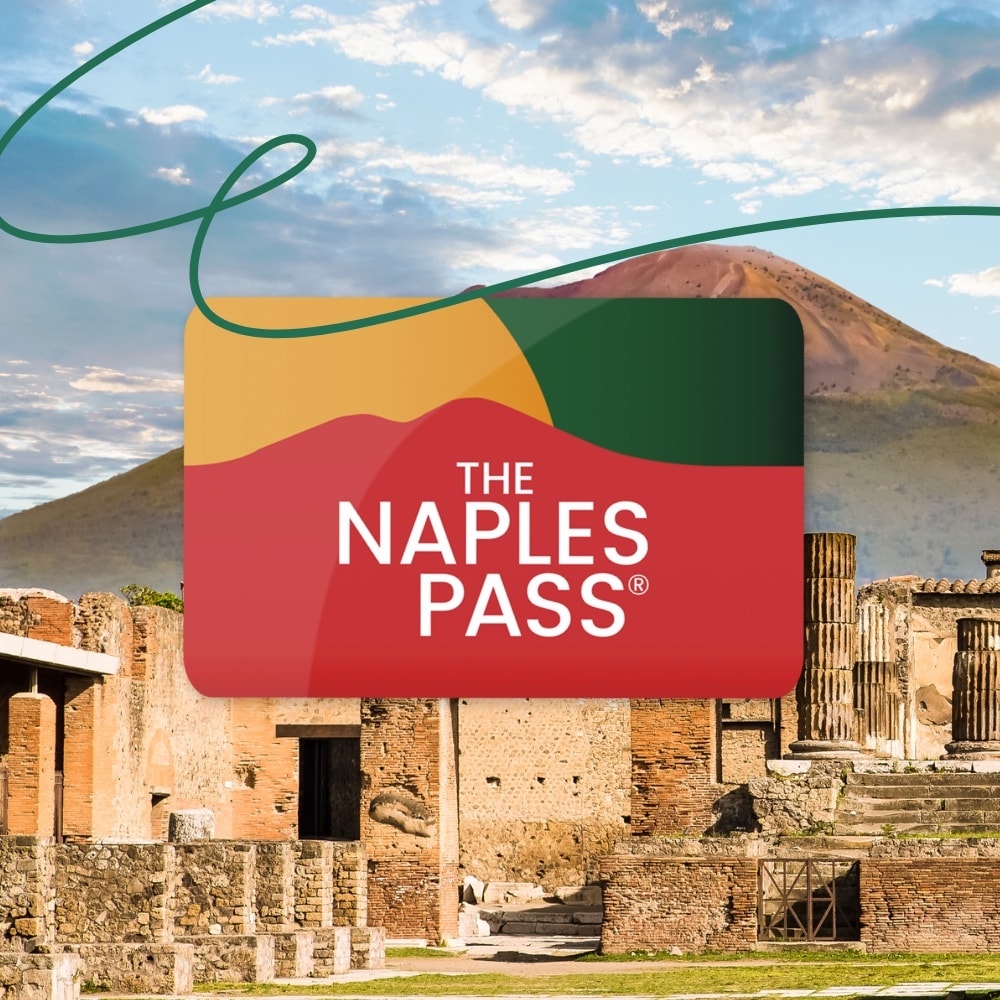
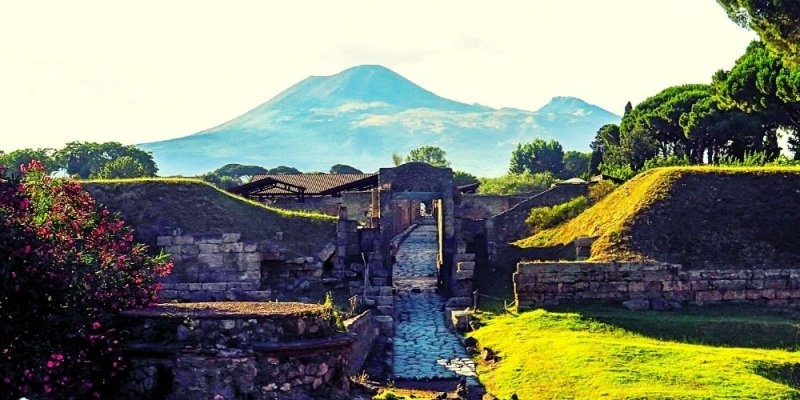

Liliana Moccia
We all know Pompeii and its special features: the Sanctuary of the Blessed Virgin of the Holy Rosary, Pompeii's main place of Catholic worship, and the archaeological excavations. Pompeii also reserves another prestige: the cultivation of grapes, introduced by the Greeks and later developed by the Romans.